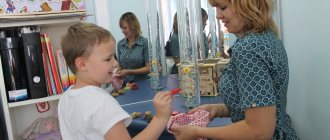Of course, a face-to-face meeting with a speech therapist is most effective. But in practice, this meeting is not always possible, and the help of a specialist may be needed in the near future. For such situations, we have developed online consultations with speech therapists using Skype video calls.
- Benefits of online consultations
- Who conducts consultations and how?
- When is it effective to study online?
- When Skype lessons are not possible
- Cost of consultation
- How to get a consultation online
- or send a request
Who conducts consultations and how?
Consultations are carried out by sexologists from the St. Petersburg center, who also conduct face-to-face consultations in the office. All specialists underwent internships and advanced training with Gennady Gennadievich Golubev. All sexologists of the center are united by higher medical education, many years of experience in successful practice, and regular training. See center specialists
Consultations are conducted in the following areas:
- Preschoolers from 2 to 6 years old;
- Schoolchildren from 6 to 16 years old;
- Adults and elderly people.
The classes are completely similar to those held in person at the center. During the first lesson, a speech therapy examination is carried out, after which the specialist answers your questions and gives recommendations, and also determines the approximate duration of the course. The duration of each lesson is approximately 60 minutes. The speech therapist or center administrator sends you all the necessary materials and tasks for independent work via Skype or email.
Consultations are carried out by appointment and only subject to 100% prepayment. All payments are completely official. The funds are transferred to the center's current account.
Interview with Vera Alexandrovna, an experienced speech therapist via Skype
Good afternoon, dear readers of our blog! Today I would like to chat with speech therapist via Skype Vera Alexandrovna, with whom we have been collaborating for a long time.
Vera Alexandrovna, good afternoon, thank you for taking the time out of your busy schedule and agreeing to answer some questions that interest us. In recent years, distance learning has been developing very rapidly, and if previously foreign languages were mainly studied online, now distance learning and consultations are practiced in literally all areas and areas, including speech therapy.
Tell us a little about yourself, where were you born, how did you study at school, why did you choose to become a speech therapist, how did you end up in Canada?
- I was born in the Russian north, in the city of Severodvinsk. From early childhood I had an interest in languages. I am very grateful to my parents who sent me to an English school from the first grade. By the end of school, I knew for sure that I would choose a profession related to linguistics or psychology. At that time, the profession of a speech therapist was not yet so popular, but I was lucky. The Faculty of Defectology and Speech Therapy was opened at the Leningrad Pedagogical Institute named after Herzen. The course was only in its second year. The Department of Psychopathology and Speech Therapy had wonderful professors who made a huge contribution to the development of speech therapy and the creation of the faculty. My teachers were such professionals as Valery Anatolyevich Kovshikov, Galina Anatolyevna Paramonova. The famous professor Natalya Nikolaevna Traugott, who taught us a surprisingly interesting course on neurophysiology. Natalya Nikolaevna was a student of academician I.P. Pavlova. Under his leadership, I defended my PhD thesis, a review of which was written by V.M. himself. Bekhterev. Can you imagine what level of teaching we had?
- Why did I end up in Canada? I went overseas during a difficult period for everyone, the late nineties. After graduating from the institute, I lived in Ukraine, where it was decided to switch to teaching in Ukrainian, including for speech therapists. The lack of appropriate working conditions and methodological developments, as well as financial difficulties, made me think about moving.
How did you get the idea that you could teach via Skype and how long have you been practicing speech therapy classes via Skype?
- Having moved across the ocean, to America and Canada, I continued to help our Russian compatriots who have speech impairments. The profession of a speech therapist is in demand here too. Moreover, it is in short supply. To get to a specialist, you have to wait in line for several months, and sometimes even a year. In addition, in some cities remote from megacities, there are no specialists at all. Distance learning is now becoming very popular. Knowing from my Russian colleagues that there was already practice of speech therapy classes via Skype, a couple of years ago I decided to take advantage of modern technologies.
Who are your clients and does the big difference with Moscow time interfere with working with students?
- There is no age limit among my clients. I have students who are 30 years old, I work with teenagers and small children, starting from 3 years old. You have no idea what a wide geography of activities I have! In one day I can virtually visit Italy, Germany, France, the Czech Republic, Thailand, England, America, Canada and, of course, different parts of Russia! The time difference is perhaps an advantage. Almost everyone would like to study in the evening, after school or work. I start my working day early in the morning, and in Moscow it’s just evening. In the afternoon I have the opportunity to study with those who live on New York time.
Do you maintain relationships with speech therapists who also provide speech therapy consultations via Skype? Do you share your experience?
- It’s amazing, but out of the 50 speech therapists with whom I studied, more than 30 remain in the profession! We still communicate using social networks, Skype and, of course, we see each other periodically in St. Petersburg. Unfortunately, fewer and fewer of our teachers come to our meetings... Many of my fellow students are already writing books themselves, defending dissertations, heading departments and research centers, and, of course, conducting classes on Skype.
Who is easier to work with: children or adults? And do you keep in touch with those students who have already completed the full course with you, are you interested in their successes?
- I am deeply convinced that for a professional there can be no preferences based on age or characteristics of speech pathologies. Speech therapist is a universal profession at the intersection of sciences. We are psychologists, doctors and, of course, teachers.
- Usually, from the very first lessons, my clients share their successes and victories and I, of course, rejoice with them. Just recently, one of my students (an English teacher) shared this episode with me. Quite unexpectedly, she had to replace a familiar translator. I had to work in front of a very large audience. She brilliantly coped not only with the translation from English into Russian, with the existing diction defects, but also with self-doubt. Her delight cannot be described in words!!! She already had a bad experience with a speech therapist for a whole year (before she turned to me). Now she believes in herself again. Together we managed to overcome all her complexes.
Vera Alexandrovna, what advantages and disadvantages do you see when conducting lessons via Skype? Have you ever encountered any unusual situations during lessons?
- I would say that all disadvantages can be turned into advantages. For example, a speech therapist does not have the opportunity to use probes when producing sounds. It should be noted that on the American continent, a speech therapist is generally prohibited from touching a child’s face (they receive a special license for this). It is more difficult to control behavior during class, but for an experienced teacher this is not a problem. Working on a computer in itself is a huge motivation for both children and adults.
- Of the non-standard situations, perhaps, I can only mention failures related to the operation of the Internet.
Is there an opinion that recently people have more frequent speech problems or that less attention was paid to this before? What is your opinion on this matter?
- I’m not familiar with the statistics on this issue, but I think it’s related to life expectancy and child birth rates. In old age, the risk of pathologies such as Aphasia, Parkinson's, and Dementia increases. In addition, modern medicine is saving an increasing number of premature babies and children with pathologies of intrauterine development, this, in turn, entails the risks of various speech pathologies in such children. Cases of Early Childhood Autism have become more frequent and, according to forecasts, will continue to increase, but the reasons for this phenomenon have not yet been named, unfortunately.
How wide is the geography of your students? Where do people most often contact you from?
- My virtual class is very large! Just the other day a new student from Japan appeared. Perhaps, for now, only on the Australian continent I have no clients. By the way, my eldest son lives in Australia. Wherever Russian immigrants live, there is a demand for Russian-speaking speech therapists, not to mention the territory of the post-Soviet space. Families who speak several languages often contact us. Typically, when there is bilingualism in the family, speech problems are always the most acute.
When you work with children, are parents present at the lesson?
- My method of work does not require the presence of parents. To be honest, they rather even interfere with the lesson. The child and the parent have their own relationship history, stereotypical reactions, and developed behavior towards each other. I try to set my own rules and requirements that allow classes to be conducted dynamically, intensively and in an organized manner. It is good when parents are present and observe the process without interfering in the course of the lesson. Lessons on Skype still provide for a one-on-one work scheme. This is an individual lesson. If the meeting involves a consultation, then, on the contrary, the presence of a child is undesirable. And, of course, at the first meeting, when the acquaintance takes place and the diagnosis is made, the presence of the parents and the child himself is necessary.
Who do you like to work with most?
- The activity is communication. The more you give a person the opportunity to open up and show his individuality, the more varied and interesting the communication is. I won’t lie, I have favorite students. Children, of course, attract with their spontaneity. You never get tired with them, they give you so much energy!
In your classes, do you use interactive materials or is the training conducted directly with the student without additional tools? Do students have homework?
- One of the advantages of classes on Skype is the use of materials already available on the Internet and the ease of creating new ones. There are certainly a lot of possibilities here. I use interactive games, presentations, just pictures, a virtual classroom and virtual whiteboards for written work. Oh, there are so many opportunities now, it’s impossible to list them all... Of course, it takes a lot of time to prepare. Firstly, I try not to repeat myself in lessons, and secondly, I prepare all lessons individually, taking into account the characteristics of the student, his interests, taking into account the diagnosis and level of speech development of the student.
- I give homework, but what? This largely determines the dynamics of the correction process. Provides an opportunity to progress faster, organizes and stimulates the student. True, the task should not be complicated and formal.
Vera Alexandrovna, did something change in your life after you started teaching remotely?
My dream has come true! I love my home and I love my work. I love to travel and communicate with people. Now all this has magically come together in one! I call it “All inclusive”.
How do you spend your free time? Do you have any hobbies?
I do Nordic walking, learn French and ride a bike. I manage to do all this during breaks between classes. As I said, I love my home and do all the housework myself. On holidays and weekends we try to travel with the whole family or at least go out of town. We love going to Niagara Falls - it's only two hours from Toronto. We study Europe and America. This summer I visited Chicago and Barcelona with my husband and youngest son.
Do you think that over time, online learning will develop and the number of students will grow?
Since the advent of the Internet, life has changed. The Internet is dragging us from real life to virtual life, and this is inevitable. Life is dynamic and diverse, and you want to be on time more and more. I think more and more people will take advantage of the unique opportunity of choice that the Internet provides. The number of students, of course, depends on professionalism. Still, the choice is primarily up to the students.
What can you wish for our school?
I wish our future students to make the right choice! Then the school will be an undoubted success! I am sure that it will be in great demand, because it is based on a great idea for distance learning! This is modern and people need it! I wish you to be in demand and accessible geographically and virtually!
More about the teacher
Thank you very much for your detailed answers, Vera Alexandrovna! We look forward to fruitful cooperation in the future!
You can sign up for a trial lesson with a teacher using the form below.
© www.profi-teacher.ru. When copying material in full or in part, a link to the original source is required.
Previous
Sign up for a trial lesson
When is it effective to conduct online consultations?
- To correct problems with sound pronunciation in schoolchildren and adults: accent, burr, “porridge in the mouth”;
- Correction of stuttering in schoolchildren and adults.
To increase effectiveness, we recommend that classes with preschoolers be conducted in personal contact between the child and a speech therapist at our center.
In extreme cases, in agreement with a speech therapist, classes via Skype are possible for children 4-7 years old with the constant presence of one of the parents next to the child to ensure the correct completion of the task and discipline. Skype consultations are available for parents on issues related to their child’s speech development.
Disadvantages of speech therapy classes via Skype
If everything is so rosy, then it means that absolutely everyone can study online with a speech pathologist? In this case, we would like to warn against creating unjustified expectations. Despite the fact that remote speech therapy work has been actively spreading in recent years, this option cannot completely replace the face-to-face presence of a teacher.
The negative side logically follows from the very advantages of online classes. The other side of the coin is the lack of “live” communication. Many nuances of a child’s behavior may simply not be noticed through a screen. But they are the ones who can help a specialist discover the roots of existing problems, more accurately build a correction program and provide the necessary assistance.
This is interesting: Myths about bilingualism - the development of children’s speech in a bilingual family
Cost of consultations
The center in St. Petersburg, where the consultation takes place, receives specialists - speech therapists-defectologists, special education teachers, speech therapists-aphasiologists and typhlopedic teachers with experience from 3 to 15 years of practice.
| Service type | Time | Specialist of the first or higher category | |
| Children's speech therapist online via Skype | 50 min. | 1,400 rub. | |
| Adult speech therapist online via Skype | 60 min. | 1,600 rub. | |
| Joint consultation of a psychologist and speech therapist online via Skype | 60 min. | 3,000 rub. | |
| Season tickets | |||
| 10 sessions with a children's speech therapist (category 1-2 disorders) | 50 min. | 13,500 rub. | |
| 10 sessions with a children's speech therapist (category 3 disorders) | 50 min. | 14,400 rub. | |
| 10 sessions with an adult speech therapist | 50 min. | 14,400 rub. | |









